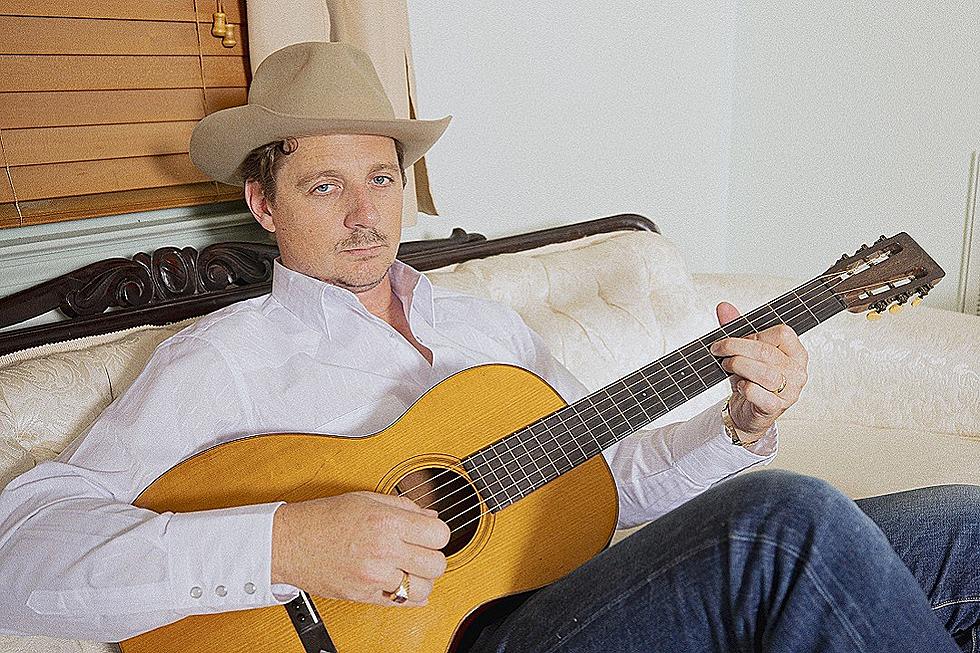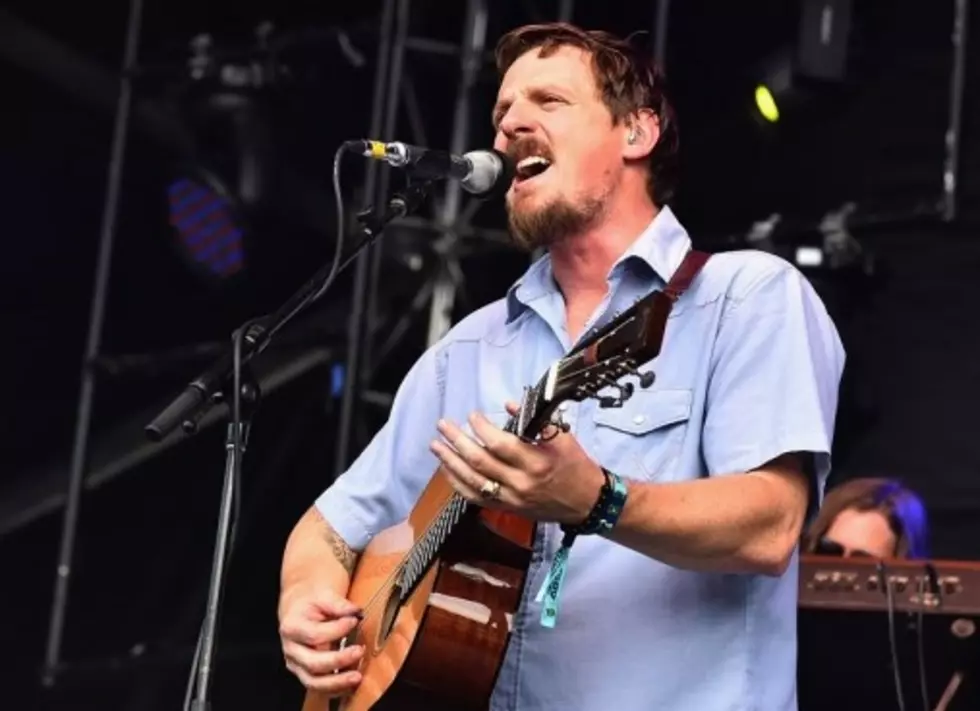
Sturgill Simpson Was Right, But Great Music Doesn’t Need Nashville’s Recognition
I didn’t grow up listening to country music.
I didn’t listen to old country, new country, Texas country, Red Dirt country, Americana, Alt-Country, any of it. I grew up riding in the passenger seat of my dad’s Ford F-150 listening to names like Zeppelin, The Who and Skynyrd. When I was in my brother’s Ford Ranger it was Pearl Jam, Nirvana, Soundgarden and Guns N’ Roses. With my mom – probably in a Mazda 626 – it was Michael W. Smith, Chris Tomlin and MercyMe.
My family listened to plenty of country music, mind you, but I didn’t. My dad and brother always tried to get me to listen to Willie and Waylon, but I said it was slow and boring. My brother would come home on a Tuesday night after going to Rick’s on the Square in Tyler, Texas, and tell me about these guys I needed to listen to – names like Boland, Rogers and Stoney.
I told him I hated it.
I was young and an insufferable, teenaged know-it-all, dismissal of “that crap.” I was unwilling to truly listen to the music.
I was dead set on names like Vedder, Cobain, Page, Townshend, Plant and Van Zandt. I still am. You’ll never convince me there’s a better band in the history of the universe than Pearl Jam, and once a year I listen to the entire Nirvana catalogue, front to back.
But you get older. You grow up and try to be less of a pain in the ass, willing to listen a little more than you speak. And then you get a job working in music – something you would have never imagined in high school, in college, after graduating from college and doing more than 10 years in the newspaper as a sports writer.
But then I got a job in music … radio, specifically.
First, let me preface the rest of this that I’m not going into some useless discourse about the evils of radio. This is about a journey to finding the music. The music that changed my life. The music that might be a little harder to find, but it exists, and it’s special.
I met a guy at the radio station with whom I began having open, honest discussions about music. I told him I grew up in a family that listened to a lot of country music. I knew all about King George, Jerry Jeff Walker, Pat Green, Reckless Kelly and Cross Canadian Ragweed. But it just wasn’t my thing, I said. I couldn’t ever get into it.
But we did agree on one band that I really enjoyed listening to: Uncle Lucius. Every chance I got I would go sit on the then-roofless patio at Stanley’s Famous Pit BBQ in Tyler to see these guys from South Austin, Texas. I loved their sound, their intensity and, of course, Kevin Galloway’s angelic, heaven-sent, once-in-a-lifetime voice.
The guy at the radio station – we all know him as Buddy Logan – encouraged me to keep listening, and maybe give another chance to those guys my dad and brother went on and on about when I was a teenager.
My love and admiration for Uncle Lucius evolved and eventually here I was, a new fan of country music. It was a new feeling, but I was into it. I went to shows as often as I could, listened to as much as I could, and I even started pitching my boss on an event I wanted our company to put on in Tyler, one now known as Red Dirt BBQ & Music Festival.
I expanded my playlist drastically over the following months. Around and between The Beatles, Pearl Jam, Zeppelin, Nirvana and The Who popped up names like The Turnpike Troubadours, William Clark Green, The Dirty River Boys, Cody Johnson, Randy Rogers Band, Willie, Waylon and many others. I went to MusicFest in Steamboat Springs, Colo., for the first time in January of 2014 and discovered the likes of American Aquarium and Lincoln Durham.
On my playlist were brand new names and names I had once dismissed with an aggressive wave of the hand off when my dad or brother mentioned them. Jason Boland’s Dark and Dirty Mile became one of my favorite albums … ever.
Then one day in early 2014 Buddy came into my office, handed me a CD and simply said, “You have to listen to this.”
I was intrigued. The cover artwork was brilliant. Though I didn’t have a damn clue who Sturgill Simpson was and had no idea what the hell “Metamodern Sounds in Country Music” meant.
It sat on my desk a few days before I remembered to take it home with me. I was left perplexed after the first time through, so I listened again in my driveway.
And again.
And again.
I went to work the next day and told Buddy, “Dude. I don’t know who the hell Sturgill Simpson is, but that guy … he’s great.”
All of these other bands and artists I had grown accustomed to really love and respect were breaths of fresh air compared to the likes of most “Nashville” country music. But there was something else about Sturgill Simpson. I found his first album, High Top Mountain, and liked it more than Metamodern Sounds. To me he was like Waylon but – forgive me, please – he was better.
A few months later I found myself next to Buddy inside a packed Club Dada in Dallas’ Deep Ellum, both of us finally getting to see Sturgill Simpson in person. We both left blown away.
Six months after watching Sturgill in a club of a few hundred, I saw him with 4,000 others at Billy Bob’s in Fort Worth. A year later he would sell out The Bomb Factory in Deep Ellum – some 4,600 tickets in just a few hours.
Fast forward to this week.
Simpson rocked the country world on Monday when he railroaded the Academy of Country Music for giving a Merle Haggard Spirit Award in an industry that once abandoned a legend.
“I’m writing this because I want to go on record and say I find it utterly disgusting the way everybody on Music Row is coming up with any reason they can to hitch their wagon to his name while knowing full and damn well what he thought about them,” Simpson posted on his Facebook page. “If the ACM wants to actually celebrate the legacy and music of Merle Haggard, they should drop all the formulaic cannon fodder bullshit they've been pumping down rural America's throat for the last 30 years along with all the high school pageantry, meat parade award show bullshit and start dedicating their programs to more actual Country Music.”
He could have mic-dropped with that one paragraph, but if you read his message entirely you get a true sense not only of his obviously gifted writing style, but that music and the industry that oversees much of it is of high importance to him. His justification for his anger is hard to criticize. Music Row took a big turn years ago, leaving behind Merle, Alan Jackson, Tracy Byrd, Willie Nelson and many others, but the industry still latches on to the names.
It took me far too many years to finally take the time to listen to and appreciate Merle Haggard. I listened so much that I was genuinely upset the day he died. Simpson’s truth only makes Merle’s death that much more heartbreaking. Nashville might have turned its back on Merle, only to attempt to benefit from his name after he was gone, but Merle's fans won't forget.
Simpson goes on to say, “I fully realize that as I type this, meetings and conversations are taking place on music Row to ensure I am blackballed from the industry and that's perfectly fine with me. I’m not sure how you can blackball somebody you don't acknowledge in the first place anyway. Yet, even though they mostly go out of their way to ignore artists like myself and Jason Isbell, I assure you they are more than aware of our existence. They are also well aware that we don't need them. Our last albums went to #1 without any help from the Mainstream Country Music establishment...and our next albums will too. With that said, I have no more need to make enemies with these people than I have a need to be their friends. If anything I'm trying to help them. Because more and more every day, people are waking up to the situation and they are pissed. Perhaps Country Music, especially Nashville, should wake up too before it's too late.”
While it’s clear Simpson is going to keep doing what he wants and will make his music however he sees fit, he cares about the amount of influence that lies within Music Row, and is obviously frustrated at how the influence is used.
And it’s easy to see why. We’re truly in a golden age of country music – the best time ever, in my opinion – and much of it remains largely ignored by the establishment. That comes in several different forms, of course. You have the likes of Sturgill Simpson, Chris Stapleton, Jason Isbell, American Aquarium, Cody Johnson, Turnpike Troubadours, Cody Jinks, Ryan Bingham and William Clark Green in different aspects of “country” music, whether it’s Texas, Red Dirt, Americana, Alt-Country, Rock and Roll Country or whatever the hell you want to call it.
But what they all have in common is this: it’s all GREAT music. And it’s all great without it being forced into mainstream radio out of Music Row. They haven’t needed it and won’t need it. All these guys have their promoters, managers and many have record labels, Simpson included. But in a matter of months Simpson went from being a guy who sold a few hundred tickets (or less) in tiny clubs to filling theaters and venues to the max with no help from radio (aside from a few like Buddy Logan).
The only thing that he had to sell people on was his music. The same goes for many others.
We all want our favorite artists and bands to go big time. While I will always cherish the times I’ve been able to see Uncle Lucius on Stanley’s small patio, I hope the day comes when they’ll be able to play “Keep the Wolves Away” or “Pocket Full of Misery” in front of 10,000 people four nights a week.
Not because of money or to say, “Man, I remember watching that band at Stanley’s in Tyler with 68 other people.” But because that means 9,999 other people will know who Uncle Lucius is … 9,999 other people who will love the band the same way I do.
This area (or whatever you want to call it) of country music is growing, and fast. People I once told about Sturgill Simpson are coming to me to tell me about Flatland Cavalry and Mike and the Moonpies.
Whether Nashville wants to “wake up” or not remains to be seen. Music Row may be fine the way it is, and that’s OK. Like thousands of other fans, I don’t mind looking a little harder to find the music. They’ll be found out eventually, with Music Row’s help or not. Real fans make sure of that.
I just thank God that Sturgill Simpson and other artists are good with that, too. Otherwise he might not have a Nirvana cover on his new album.
Thanks for the music, Sturgill, and so many others.
I’m glad I finally came around.
More From Radio Texas Live









